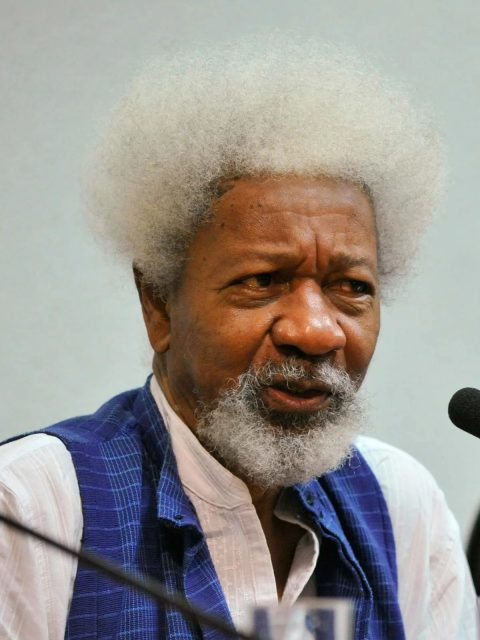Summary Of The IJMB Literature Text Antigone By Sophocles; This study material is suitable for students who are sitting for the forthcoming IJMB examination. The African Prose text titled Antigone is used for IJMB examination till 2024.
HAVE YOU USED OUR JAMB TOOL YET? IT PROVIDES YOUR JAMB COMBINATION FOR FREE
Summary Of The IJMB Literature Text Antigone By Sophocles
The Chorus begins by introducing the main characters of the play, providing a brief description of each. Antigone is a young girl who will face a tragic fate. Haemon, her handsome fiancé, is engaged to her instead of her sister Ismene, which surprises many. Creon is the king of Thebes and has responsibilities as a ruler. The Nurse and Queen Eurydice are also present, with Eurydice awaiting her death in her room. Three Guards play cards, oblivious to the tragedy unfolding around them.
The Chorus then recounts the events that led to Antigone’s tragedy. Their father, Oedipus, had two sons, Eteocles and Polynices. After Oedipus’ death, it was agreed that the brothers would alternate ruling Thebes. However, Eteocles refused to give up the throne after the first year, leading to a conflict with Polynices and foreign princes. The brothers killed each other, and Creon became the king. Creon honored Eteocles with a proper burial but left Polynices unburied under the penalty of death.
The scene shifts to dawn, where Antigone sneaks into the house and is questioned by the Nurse about her whereabouts. Ismene also arrives, expressing concern over Antigone’s actions. Antigone sends the Nurse away and refuses Ismene’s plea to understand Creon’s intentions. Haemon enters, and Antigone confides in him, explaining that she can never marry him. Haemon is shocked and leaves. Ismene returns, fearing that Antigone plans to bury Polynices despite the risks. Antigone reveals that she has already done so.
Later that day, the anxious First Guard informs Creon that someone has covered Polynices’ body with dirt during the night. Creon orders the guards to uncover the body secretly. The Chorus appears and declares that the tragedy is about to unfold. Tragedy, unlike melodrama, is depicted as clean, calm, and flawless. Everything in tragedy is inevitable, hopeless, and known. All the characters are bound to their predetermined roles.
The Guards bring in Antigone, who is resisting. The First Guard suggests throwing a party to distract from the situation. Creon arrives, and the First Guard explains that Antigone was caught digging Polynices’ grave during daylight. Creon dismisses the guards and privately orders Antigone to go to bed, pretending to be ill. Antigone insists that she will go out again that night. Creon questions whether she believes being Oedipus’ daughter exempts her from the law and suggests her death is the fitting end to her life. He prioritizes the stability of Thebes over Antigone’s marriage.
Antigone refuses to be saved by Creon, and he angrily grabs her arm but eventually releases her. Antigone asserts her right to say no to anything she finds vile, even if it means her ruin. Creon asks her to pity him and live, but Antigone is resolute in her decision to say no and face death.
Creon makes a final plea, asking Antigone to understand the backstage aspects of her own tragedy. He explains the troubled history of her brothers and the reasons behind their actions. Antigone, emotionally drained, heads to her room. Creon urges her to find Haemon and get married quickly, emphasizing the importance of not wasting her life. Antigone challenges Creon’s conformity and declares herself as part of a tribe that questions and rejects false hopes. Ismene enters, seeking forgiveness from Antigone and promising to help her. Antigone rejects her but urges Ismene to bury Polyn
ices herself. Antigone warns Creon that her resistance is contagious and demands to be arrested. Creon gives in, while the Chorus protests. Haemon enters and begs his father to stop the guards, but Creon believes it is too late.
Antigone sits in her cell with the First Guard, knowing that she is about to die. The Guard talks about trivial matters, but Antigone interrupts, asking how she will be executed. The Guard reveals that she will be immured. Antigone asks if he can deliver a letter for her and offers her a ring. The Guard suggests that she dictate the letter while he writes it in his notebook, to avoid suspicion. Antigone reluctantly agrees and recites her letter, expressing remorse and acknowledging that her actions brought unhappiness to her loved ones. The Guards then lead Antigone away as a drum roll sounds.
The Chorus returns, announcing that it is now Creon’s turn to face the consequences. A Messenger arrives and reveals the tragic news: as Antigone was being immured, Haemon’s cries were heard from inside. Creon ordered the guards to free Antigone, but it was too late. Antigone had already hanged herself, and Haemon had stabbed himself, joining her in death. Upon hearing of Haemon’s demise, Eurydice finished her knitting, went to her room, and took her own life. Creon is left alone. The Chorus reflects that if it weren’t for Antigone, everyone would have lived in peace. All those destined to die have now perished. Only the Guards remain, indifferent to the tragedy unfolding before them.








